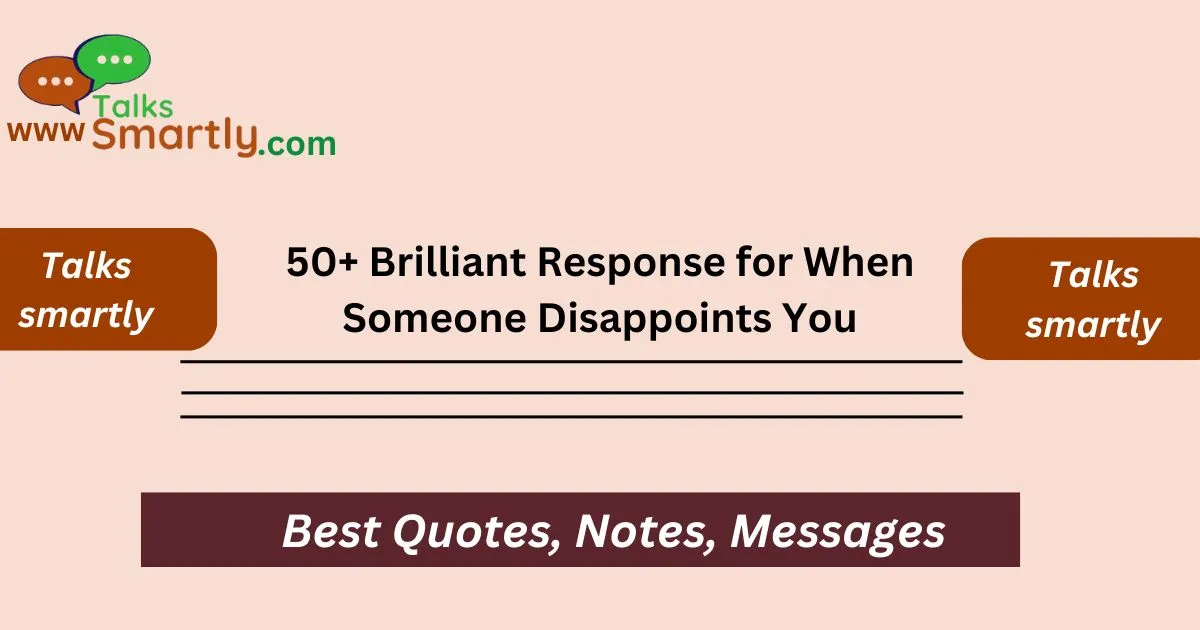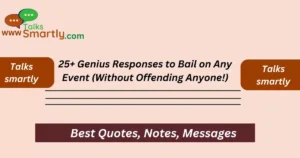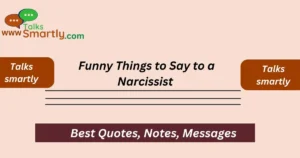Introduction:
Explore 50+ brilliant responses to handle disappointment gracefully and constructively. These thoughtful approaches will help you address issues while maintaining positive relationships.
Disappointments are an inevitable part of life. Whether it’s a friend who cancels plans at the last minute, a family member who fails to keep a promise, or a colleague who doesn’t meet expectations, handling these situations effectively is crucial for maintaining healthy relationships and managing stress. The way we respond to disappointment can either mend or strain our connections with others.
In this article, we’ll explore 150 brilliant responses for various scenarios of disappointment, providing you with thoughtful and effective ways to address these situations.
We aim to offer practical advice that can help you navigate these challenging moments with grace and clarity.
When a Friend Flakes on Plans
- “I understand things come up, but I was really looking forward to our time together. Let’s reschedule when you’re free.” Acknowledges their situation while expressing your disappointment and desire to make plans in the future.
- “I was disappointed when you canceled, but I value our friendship. Can we find another time that works for both of us?” Balances expressing your feelings and showing commitment to the relationship.

- “It’s okay if you had to cancel, but please let me know sooner next time. It helps me adjust my plans better.” Provides constructive feedback on how they can improve communication in the future.
- “I get that things come up unexpectedly, but I was excited about our plans. Let’s try to find another time soon.” Shows empathy while emphasizing your enthusiasm for rescheduling.
- “I understand that plans change, but I felt let down. Can we discuss a better way to handle such situations in the future?” Opens a dialogue about managing expectations and communication.
- “I was really looking forward to seeing you, but I appreciate you letting me know. Let’s set up another day to meet.” Expresses your feelings while acknowledging their effort to inform you.
- “I know life can be unpredictable, but I hope this doesn’t become a pattern. Let’s find a time that suits us both.” Addresses your concern about future reliability while suggesting a solution.
- “I felt disappointed when you canceled, but I understand things happen. Can we plan for another day?” Balances understanding with your feelings of letdown.
- “It’s frustrating when plans fall through, especially when I’ve been looking forward to them. Can we plan for another time soon?” Highlights your frustration while suggesting a new plan.
- “I was really excited about our meet-up, and I’m bummed it didn’t happen. Let’s arrange another day to get together.” Conveys your disappointment clearly while remaining open to rescheduling.
When a Family Member Breaks a Promise
- “I’m really hurt that the promise wasn’t kept. It’s important to me that we communicate more clearly in the future.” Expresses your hurt while suggesting better communication for the future.
- “I was counting on your promise, and I feel let down. Can we talk about how to prevent this from happening again?” Opens a discussion about preventing future issues while addressing your feelings.
- “I understand that things don’t always go as planned, but breaking promises affects me. Let’s work on being more reliable.” Shows empathy while addressing the impact on you and suggesting improvement.
- “It’s disappointing when promises aren’t kept, especially when I trust you. Can we discuss what happened and how we can avoid this?” Focuses on trust and communication, seeking to understand and resolve the issue.
- “I felt really let down when you didn’t follow through. Let’s talk about how we can both keep our promises more consistently.” Highlights your disappointment and opens a conversation about reliability.
- “It’s frustrating when promises aren’t kept, but I understand if there was a genuine reason. Can we discuss it and find a way forward?” Balances frustration with understanding and suggests a discussion for resolution.
- “I’m disappointed that the promise wasn’t fulfilled. Can we figure out what went wrong and how we can improve our communication?” Addresses your disappointment while seeking to understand and improve communication.
- “When promises are broken, it can affect our relationship. Let’s talk about what happened and how we can avoid such issues in the future.” Emphasizes the impact on your relationship and suggests a conversation for resolution.
- “I feel let down by the broken promise. It’s important to me that we work on being more reliable with each other.” Expresses your feelings clearly and suggests improving reliability.
- “I understand things can happen, but breaking promises affects me. Let’s talk about how we can better manage our commitments.” Shows understanding while addressing the effect of broken promises and suggesting improvement.
When a Coworker Drops the Ball

- “I noticed that the task was missed. Can we discuss what happened and how we can prevent this from happening again?” Addresses the issue while seeking a discussion on prevention.
- “It’s important for us to meet deadlines. Can we talk about what went wrong and how to improve our process?” Focuses on deadlines and improving processes.
- “I’m concerned about the missed deadline. Can we review what happened and come up with a plan to address it?” Highlights your concern and seeks a solution.
- “It seems there was an oversight on this task. How can we make sure this doesn’t happen in the future?” Addresses the mistake while focusing on future prevention.
- “The missed deliverable has caused some issues. Can we go over what happened and discuss how we can fix it?” Points out the impact and seeks a resolution.
- “I understand that mistakes happen, but we need to address this one. Can we work together to figure out how to avoid it in the future?” Balances understanding with a focus on improvement.
- “This task didn’t go as planned, and it’s causing delays. Let’s talk about how we can get back on track.” Addresses the impact and seeks a path forward.
- “I’m disappointed that the task wasn’t completed. Can we discuss what went wrong and how to handle such situations better?” Expresses your feelings while seeking solutions.
- “I need to understand what happened with this task so we can avoid similar issues in the future. Can we go over it together?” Seeks clarity and improvement.
- “It’s crucial for us to meet our deadlines. Let’s discuss what went wrong and how we can better manage our responsibilities.” Focuses on deadlines and effective management.
Comforting Words for Someone Who Lost a Mother
When a Partner Lets You Down
- “I was really looking forward to our plans, and I feel disappointed. Can we talk about what happened and how to improve things?” Conveys your disappointment and seeks a discussion for resolution.
- “It hurt when you didn’t follow through. I’d like to understand why and find a way to ensure this doesn’t happen again.” Addresses your feelings while seeking understanding and solutions.
- “I was counting on you, and it’s hard to deal with the letdown. Can we discuss how to avoid such situations in the future?” Opens a dialogue about preventing future disappointments.
- “I feel let down by your actions. Let’s talk about how we can both work on keeping promises and supporting each other.” Highlights your feelings and suggests mutual improvement.
- “It’s important for us to be reliable with each other. Can we discuss what happened and how we can strengthen our commitment?” Focuses on reliability and strengthening the relationship.
- “I understand that things don’t always go as planned, but it’s important to address this. Can we discuss how to move forward?” Balances understanding with the need for resolution.
- “I felt really disappointed when you let me down. Let’s talk about what we can do to avoid similar issues in the future.” Expresses your feelings and seeks a way forward.
- “It’s frustrating when expectations aren’t met. Can we work together to figure out how to handle such situations better?” Addresses frustration and seeks collaboration for improvement.
- “I need to understand what happened and how we can both improve. Can we have a conversation about this?” Seeks understanding and improvement through discussion.
- “When things don’t go as planned, it affects our relationship. Let’s talk about what happened and how we can avoid this in the future.” Emphasizes the relationship impact and suggests a discussion for prevention.
When Someone Disappoints You in a Professional Capacity
- “I noticed that the project didn’t meet the expectations. Can we discuss what went wrong and how to address it?” Identifies the issue and seeks a discussion on solutions.
- “It’s important for us to meet our professional standards. Can we review what happened and how we can improve moving forward?” Focuses on standards and improvement.
- “I’m concerned about the quality of work that was delivered. Can we discuss how to prevent this type of issue in the future?” Addresses quality and seeks future prevention.
- “The outcome of this project didn’t meet our goals. Can we go over what went wrong and how to better align our efforts?” Highlights the misalignment and seeks resolution.
- “I understand that challenges occur, but we need to address this issue. Can we discuss a plan for improvement?” Balances understanding with the need for improvement.
- “It’s important for us to deliver on our commitments. Can we discuss what happened and how we can ensure better results?” Focuses on commitments and better outcomes.
- “The missed expectations have impacted our timeline. Can we review the situation and come up with a solution?” Addresses the impact on timelines and seeks resolution.
- “I’m disappointed with the outcome. Let’s talk about what we can do differently to ensure better results in the future.” Expresses disappointment and seeks improvement.
- “It’s crucial for us to address this issue and find a way to avoid it in the future. Can we discuss what went wrong and how to fix it?” Emphasizes the importance of addressing and preventing similar issues in the future.
- “The project did not meet our expectations, and it’s important we discuss the reasons and solutions. Can we go over what happened?” Seeks clarity and solutions for future improvement.
Dealing with Disappointment in a Personal Friendship

- “I felt hurt when our plans didn’t work out as expected. Can we talk about what happened and how we can handle similar situations better?” Opens a conversation about handling future disappointments.
- “It’s tough when things don’t go as planned. I value our friendship and would like to understand what happened so we can improve communication.” Balances your feelings with a desire for better communication.
- “I was looking forward to our time together, and it’s disappointing that it didn’t happen. Can we discuss how we can manage expectations better in the future?” Addresses disappointment and suggests improving expectations management.
- “When our plans fall through, it affects me. Let’s talk about what happened and how we can ensure this doesn’t become a pattern.” Emphasizes the impact on you and seeks to prevent future issues.
- “I understand that things can come up unexpectedly, but I felt let down. Can we talk about how to handle such situations more effectively?” Balances understanding with a focus on effective handling of similar situations.
- “It’s important for us to communicate openly when plans change. Can we discuss how to improve this and avoid misunderstandings?” Highlights the need for open communication and improvement.
- “I was really excited about our plans, and I’m disappointed they didn’t work out. Can we find a better way to handle such situations in the future?” Expresses disappointment and seeks a solution for future planning.
- “I feel let down when plans don’t go as expected. Let’s talk about how we can better support each other and manage our expectations.” Addresses your feelings and suggests mutual support and expectation management.
- “It’s frustrating when things don’t go as planned, but I understand that sometimes it happens. Can we discuss how to improve our planning and communication?” Balances frustration with understanding and seeks improvement.
- “I felt really disappointed when our plans didn’t work out. Can we talk about what happened and how we can ensure it doesn’t happen again?” Seeks clarity on the issue and improvement for future plans.
Tips for Communicating Disappointment Effectively
- Be honest but tactful in expressing your feelings. Use ‘I’ statements to focus on your experience rather than placing blame. This approach encourages honest communication while minimizing blame.
- Choose a calm and appropriate time to discuss the issue. Avoid addressing disappointment when emotions are running high. Timing is crucial for effective communication.
- Listen actively to the other person’s perspective. Understanding their point of view can help resolve the issue more effectively. Active listening is key to resolving conflicts.
- Clearly articulate your feelings without accusing or blaming. Use specific examples to explain how the situation affected you. This method ensures clear and non-accusatory communication.
- Seek to understand the reasons behind the disappointment. This approach can provide insight into how to prevent similar issues in the future. Understanding the root cause is important for long-term resolution.
- Offer constructive feedback rather than just expressing frustration. This can lead to more productive conversations and solutions. Constructive feedback helps in finding effective solutions.
- Be willing to listen and negotiate. Finding common ground can help resolve the issue and strengthen the relationship. Negotiation and compromise are essential for conflict resolution.
- Acknowledge any misunderstandings and work to clarify them. Clear communication can prevent future disappointments. Addressing misunderstandings is crucial for maintaining effective communication.
- Maintain a positive attitude and focus on solutions. This can help de-escalate the situation and lead to better outcomes. A positive and solution-oriented approach is effective in resolving conflicts.
- Follow up after the discussion to ensure that the issue has been resolved and that both parties are satisfied with the outcome. Follow-up is important to ensure resolution and satisfaction.
Final Thoughts:
Handling disappointment effectively is key to maintaining healthy and constructive relationships, whether in personal or professional contexts. By responding thoughtfully and communicating clearly, you can address issues while preserving and even strengthening your connections with others.
Remember to approach these situations with empathy, understanding, and a focus on constructive solutions. The responses and tips provided in this article aim to help you navigate the complexities of disappointment with grace and effectiveness. By applying these strategies, you can turn challenging moments into opportunities for growth and improved communication.











